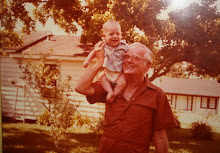Now, the few people who stumble across this blog are likely unfamiliar with the concept of a BBS. But, for anybody who grew up in the shadow of War Games and Whiz Kids, Bulletin Board Systems were the internet before the internet. More than this, they were a more intimate, more personal, more close-knit network of computer users. Essentially, a BBS was an open system run on a personal computer that other users could dial into via phone lines and modems. A system operator (Sysop) would set up his computer as a single- or multi-user host system (depending on how many phone lines he had); and other computer owners could use their 300, 1200, 2400 baud modems to access his computer for the purpose of trading files, sending messages, posting comments, chatting with the Sysop or other users, or playing multi-person online games. This may seem limited by today’s standards, but in the late eighties and early ninety’s, it was blowyourfuckingmind exciting!!!

These systems were run on very low megahertz, low memory, floppy disk storage, almost toy-like computers: TRS-80s, Commodore 64s, Apple IIes, and IBM 8086s. The boards were typically run as a hobby. In fact, many older users and Sysops shifted to the BBS world from Ham Radio. The first system I owned was a Tandy 1000 SL/2 I bought on lay-away at Radio Shack. It had a CMT monitor, an 8086 processor, 386kbs of memory, a single 720k 3.5 floppy drive, and a 2400bps modem I installed later. My current cell phone is 10,000 times more powerful than this computer was. But, at the time, that system was my vehicle into the world of the BBS.
I would spend hours and hours and hours of my days and nights dialing BBSes, looking for new BBSes locally, searching for the shareware I wanted, and learning everything I could. I can still remember the time it took to download a large file. I would select the file I wanted, run around the house disabling all the phones in the house, and then wait the 30, 45, 50 minutes to download a good-size compressed file. Any disturbance in the signal (somebody picking up the phone, somebody calling in, etc. . . ) would cause me to have to start the process all over again. But, if everything went right, I would have the game or program I wanted; and I’d be able to spend even more time playing it. This was a Basic and MSDos world—no multi-tasking, no windows, only your computer talking to another computer with a series of beeps, buzzes, clicks and clocks. It seems so low-tech and time-consuming now that it’s difficult to communicate the excitement that I would feel “surfing” these BBSes.
Between 1987 and 1994, the BBS community exploded. People all over the country were calling other computers, sharing files and sending echo-mail from one system to the next. Being a part of this community was like having one foot in the future. From my vantage point then, I imagined a coming world-wide network of computer users and Sysops exchanging information through ANSI-clouded, digital worlds. And then, seemingly as quickly as it appeared, it vanished. Occasional BBS callers became internet users and die-hard BBS supporters fought the futile fight. But, in the blink of an eye, it was over; an entire movement gone!
It’s sad to think that this stage between autonomous computers humming in living rooms around the country and the full-blown internet has been written out of the history of networking. The transition wasn’t necessarily linear—BBSes didn’t become internet websites. But the BBS world opened the door that the internet walked through. The unanticipated, viral popularity of BBSes made the dream of terminal to terminal communication and digital commerce a real possibility. Somebody should really fight to write BBSes back into the story. And, maybe somebody has. I found this fantastic eight-part documentary on the lost BBS world. This is the best attempt I’ve come across so far of someone writing the BBS back into the history of the world computer networking has made.
NO CARRIER . . . . . .













No comments:
Post a Comment